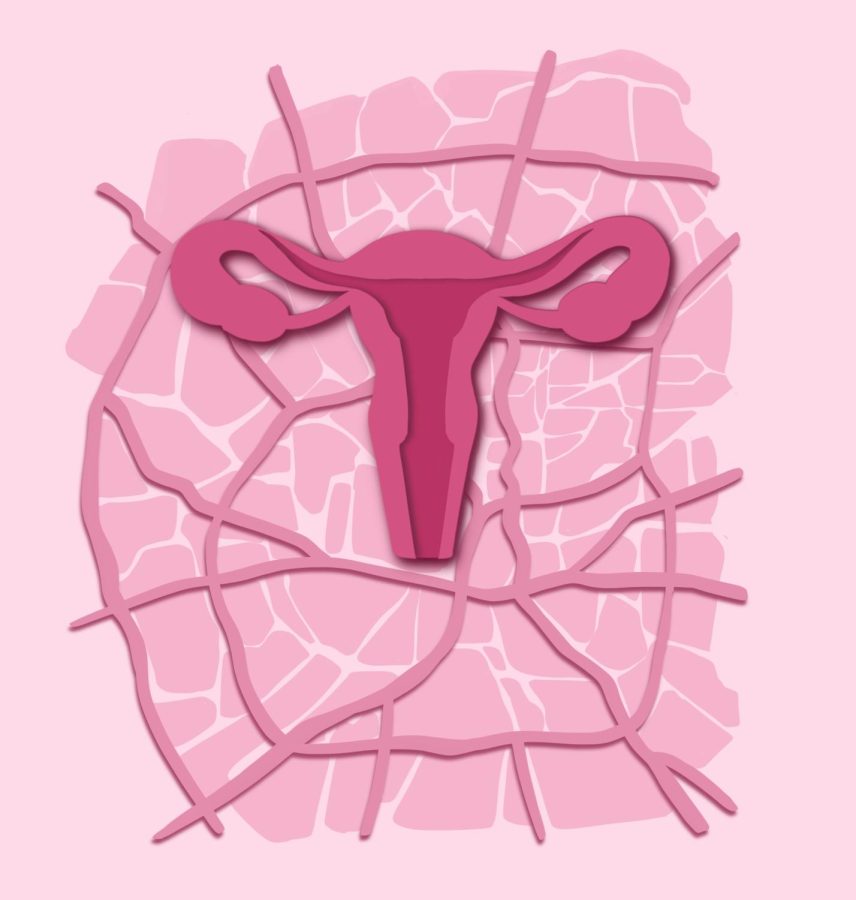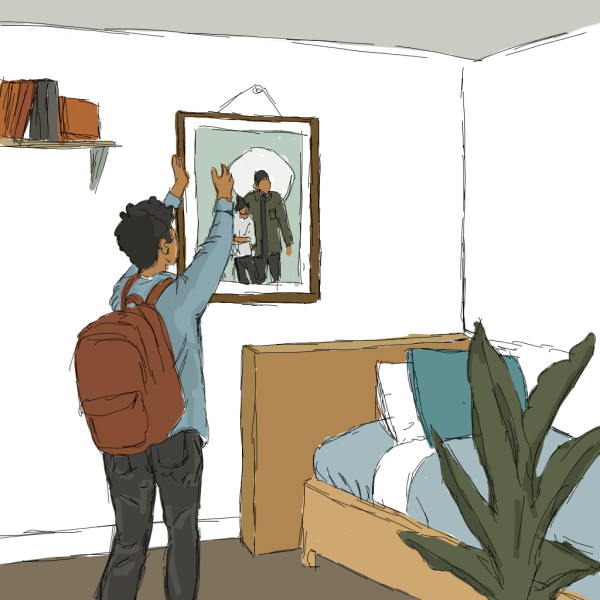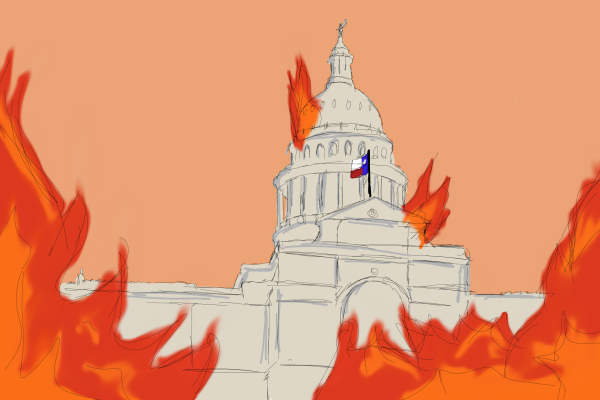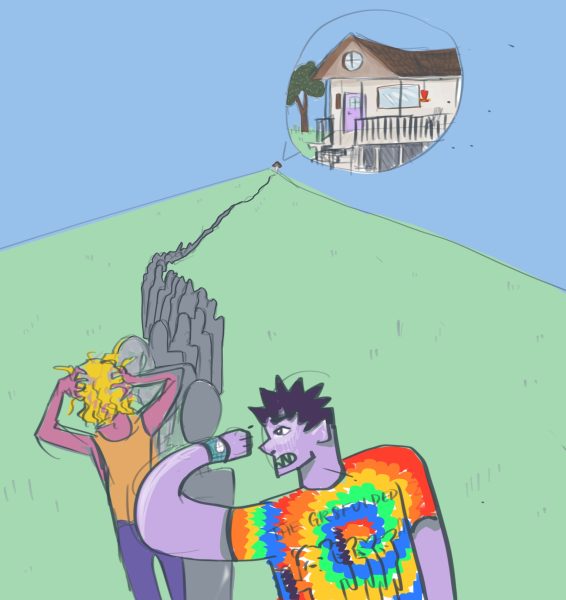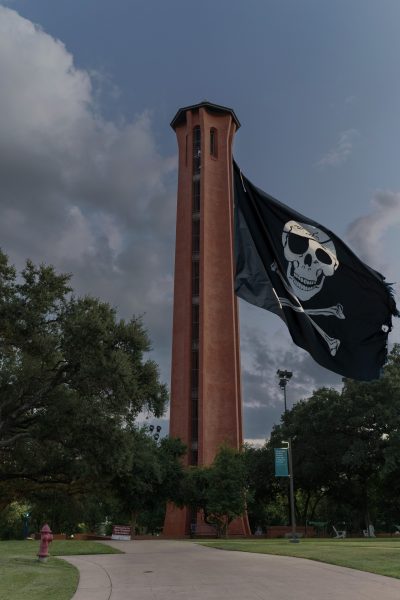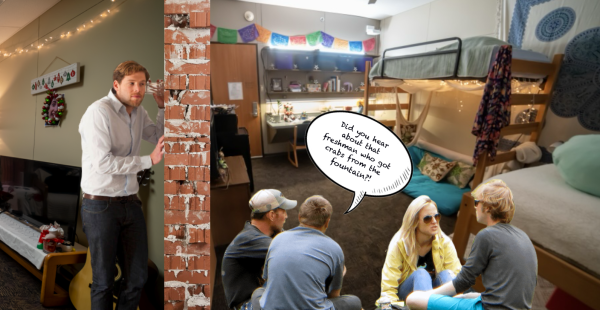Being a student in Post-Roe v. Wade San Antonio
On June 24 of this past summer, Roe v. Wade was overturned. Constitutional protection over abortion crumbled and was left wide open to the prying hands of the governing states. Anyone who can get pregnant has to succumb to the control of legislators that believe our autonomy is conditional, and when impregnated, under any circumstance, are legally expected to endure a lifetime of caregiving. Texas has ruled abortion illegal and any involved parties will be subjected to legal action as well. This decision is based on conceptions of morality that are deemed natural and binding regardless of an individual’s differing belief systems. It’s this repeated nature of our country to place theocratic ideals on the living and the unborn that leaves us with the responsibility of staying angry and awake, never knowing when the next shoe will drop.
Trinity University’s response to the abortion crisis was an email from the Interim President Megan Mustain sent on June 27 that stated “whether one believes the Supreme Court’s decision just or unjust, we must each reaffirm our commitment to one another as a community and strive to center the experiences and needs of our community members who are hurt, afraid, and upset at this ruling and what it portends for their lives or the lives of their loved ones.” The rest of the email shared resources on campus such as Counseling Services, Health Services and the University Chaplain and extended sympathy as well.
While acknowledging that the President has the role of unifying students and staying neutral in political and social views, Mustain’s response shows she understands the severity of the Roe v. Wade decision. “We saw the Supreme Court’s overturning of 50 years of legal precedent that established and upheld women’s rights to make reproductive healthcare decisions that impact their futures,” Mustain said. Although the tone remains very public relations focused, this statement provides some hope that the Big Brothers at Trinity University might be on our side, at least on an individual level.
The only other campus reaction includes protests from the TU Pro-Choice organization. Although an empowering act of exercising the freedom of self-expression, the protest was very minuscule and the turnout was slim. TU Pro-Choice has an important voice on campus, especially in opposition to Tigers for Life, an anti-abortion organization on campus. Yet, it is hard to say if TU Pro-Choice has the impact necessary to rally students from varied identities to create a unified presence on campus.
In Texas, finding access to abortion and reproductive health resources requires knowledge of our options, which are scarce compared to other parts of the country. The two previously functioning abortion clinics in our local San Antonio community are both now closed. Abortion access will be a lot more difficult for any students on campus that need it. At Trinity University, it’s vital that all students know what’s available to them on campus and in the San Antonio community. A college student considering their options will have many things to consider such as future aspirations, financial stability and mental and physical health.
The Title IX office on campus provides resources in cases of pregnancy but preventative rhetoric remains nonexistent. Students will be provided academic accommodations for missing classes and assignments and for pregnancy-related conditions through Student Accessibility Services. There are up-to-code lactation rooms around campus along with excused absences for nursing and pumping. Title IX can refer students to the specific office that allows the accommodations you need and will help you work for them.
The Title IX office in Northrup Hall will not follow up on referrals and ensure anonymity in your decision-making. This clause is a form of protection for students when considering abortion; however, referrals are made through legal systems and healthcare that are required to uphold the Texas abortion ban, so taking the Title IX route might not provide students the resources necessary for an abortion, but will protect pregnant or parenting students and staff from any sex-based discrimination.
Health Services on campus are held to the same standard as the rest of the country. TU Pro-Choice President Meg McDonald has been paying close attention to how Health Services navigates a post-Roe v. Wade atmosphere in Texas.
“[Health care] providers have the most to lose,” McDonald said. “Well, except for the people who are dying from the bill and not getting healthier. [The providers are] the ones who are really targeted by the bills in Texas, with the fines and jail time and losing their license. It really comes down to, ‘do I help save this one person and lose my job or not help this one person so that I can help more people in the future?’ That’s just got to be the worst situation.”
The state of our country has become a breeding ground for ethical dilemmas imposed by legalities. Our doctors often have to make decisions such as saving the life of a patient who will die due to their pregnancy or following the law and saving their livelihood. It goes against the philosophy behind the Hippocratic oath and further creates a disconnect between the health care system and the patient, which is already a problem we face with the capitalization of health care and pharmaceuticals.
McDonald continued to explain that all we could expect from healthcare providers in Texas is preventative care. Health Services on campus still provide contraceptives like condoms, dental dams and contraceptive counseling. Birth control prescriptions can be obtained by making an appointment with a physician or nurse practitioner. Health Services can also help connect students with off-campus resources such as clinics that are able to insert IUDs or Nexplanon. Students are provided with contraceptive and preventative options, but if we are seeking an abortion, Health Services can’t give us anything more than a “you should probably consider all your options.”
When asking McDonald what a student’s biggest resource was for procuring an abortion, she pointed toward social media. Instagram has a plethora of information on how to safely access and take the abortion pill, travel for an abortion, how to support someone through an abortion and any changes in legislation regarding reproductive rights that we need to be aware of. This is by and large the most important resource students and the rest of the San Antonio community has to access an abortion. Counseling Services and emotional support from the University Chaplain will not prevent a future of nonconsensual caregiving. External sources from the media and other states are the only way to ensure that our future is in our hands and protected. That, and voting.
McDonald urges the Trinity community to follow the TU Pro Choice Instagram, which provides relevant information students may need when making a decision. TU Pro Choice aims to educate students about their sovereignty over their bodies through fewer shock tactics and more support and information.
Trinity, although diverse and full of opportunities to find our individual niche, still remains segregated in a very stark way, shown in our response to the abortion crisis across our campus. When students find organizations that support their ideologies and interests, often times students become enveloped in that bubble. Many students are affected and care deeply about abortion rights being taken away but don’t know how they can be involved or how it affects them at Trinity. Although TU Pro Choice aims to stay “lowkey” and not pushy, there needs to be more awareness and collaboration between students and different organizations when it comes to political and social upheaval such as the overturn of Roe v. Wade.
In the greater San Antonio community, there’s a temporary lull in further reproductive rights being taken away from us. The Bexar County district attorney has signed a promise to the public that abortion criminalization will be the lowest priority for police. McDonald believes we have more protections in San Antonio than in more rural areas of Texas, however, “we expect in the coming years to see attacks on birth control, Plan B and other resources that are [currently] still legal.”
Educating ourselves and voting are the only options to ensure that we don’t merely succumb to the waiting game that is currently our nation at large. Building intersectional communities across campus that address how the abortion crisis affects every sociocultural group at Trinity is the only way students can let go of identity politics based on their majors, extracurriculars, etc, and realize that collective empowerment will speak louder than a singular organization on campus.

Hello! I am a junior English and Business major with a minor in creative writing. As an opinions columnist, I’m passionate about exploring anthropological...

My name is Michaela Bosco. I am a sophomore double majoring in Art and Communications as well as minoring in New Media. In my free time, I enjoy drawing,...

